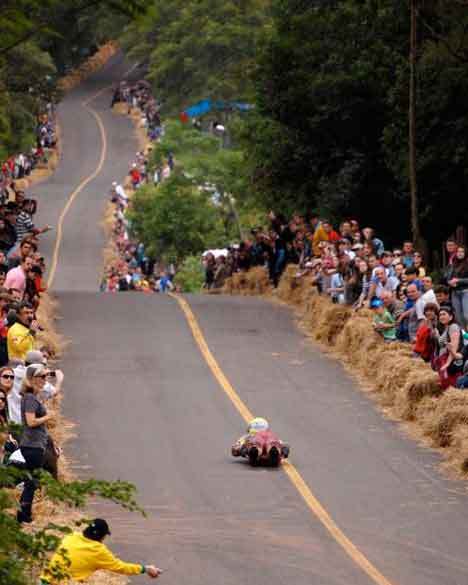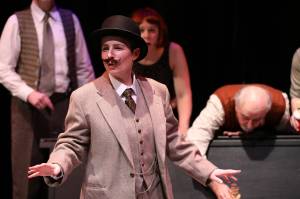Word on the street: McBride is one fast luger
Published 6:56 pm Monday, November 9, 2009
Bothell resident breaks record, tops 76 mph in Brazil
For Bothell street luger Chris McBride — an admitted adrenalin junkie — it was an ESPN viewing more than a decade ago that got him started in his sport of choice, a journey that has taken him all over the world.
“At that stage, the people that were in street luge were in it since the beginning or saw it on the X Games,” recalled McBride, who works as a computer programmer. “One day I turned the TV on, and these guys were like, riding down the street. I thought, ‘That’s awesome… that’s what I want to do.’”
A lifelong fan of ice luge, as seen in the winter Olympic Games, he badly wanted to experience the feeling of swooshing at high speeds on his back.
Having grown up in Arizona, however, McBride decided to stick with the street version of the sport.
He bought some leathers and aluminum, and actually built his own board. He learned tips and tricks from local enthusiasts in the sport, and actually qualified for the X Games in the year that the organization cancelled street luge as an event.
“Ever since then we’ve been in obscurity because the Gravity Games collapsed (too),” McBride lamented. “It is a hard sport to get into, but I was lucky in that the top riders lived in the area.”
Street luge is raced in two classes: Unlimited, which use highly modified boards made out of lightweight materials, designed aerodynamically and built for speed; and Classic, for which a board can only consist of a piece of wood and two skateboard trucks.
In his most recent race, the Malarrara Pro Teutonia World Cup in Brazil on Oct. 27, McBride clocked a blistering official speed of 76.3 mph in the Classic category, shattering the old record by more than 10 mph.
The Teutonia course is one of the fastest in the world, featuring a long straightway with a 6-percent grade, perfect conditions for a record-breaking performance.
“You have to find a fairly straight road that’s steep, and that’s hard to do,” McBride said. “(That course) was three miles long with almost no turns, and we were hitting 70-plus miles an hour.”
McBride’s performance earned him the first gold medal of his career, and he is now ranked fourth in World Cup points for both the Unlimited and Classic divisions in 2009.
Unlike other extreme sports that attract sponsorship deals and branding labels to promote athletes, street luge is still on the fringe, causing a lot of athletes to have to shell out an enormous amount of money to participate.
“Unfortunately for me, I have to pay my own way,” said McBride, who has raced in the Czech Republic, Russia, Brazil, Australia, South Africa and all over Europe. “I try to take the cheap route out sometimes, but I probably put in $25,000 a year to do this.”
But much like other extreme sports, street lugers have to deal the threat of injuries, of which McBride has suffered more than his fair share.
“I race a lot more conservatively nowadays,” McBride admitted, “But when I first started, I broke a bone every year. I broke my arm, and the next year I broke my other arm.”
The 40-year-old recalled his worst injury during the 2002 Streets of San Francisco event, during which McBride had nearly reached the pinnacle of the sport, as the fifth-ranked street luger in the world.
“The hills were steep, un-level, and if that wasn’t enough, we put in ramps,” he remembered. “I flew off the ramp at an angle… and bailed off the board as I was coming toward the hay (lining the course). I broke my arm, leg and nose.”
The constant flow of injuries nearly caused McBride to hang up his career, but after making a full recovery, he decided to give it one more shot. That indescribable “rush” he knew all too well came back.
“The traveling is really good, but really it’s just the speed, the adrenaline,” said McBride about what he enjoys most about the sport. “The best example was this last race. “You get to the top of the hill and you think, ‘What am I doing?’” And then I get to the bottom and I’m like, ‘Yeah, that’s why I do it.’”
To learn more about McBride, the sport of street luge and read journals of his adventures, visit www.chrismcb.com.





